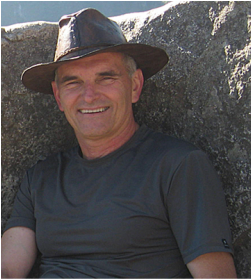 As the protests in the Arab world erupted in two dozen countries this week, leaving four US embassy personnel, and at least one protestor dead, social media and mainstream media were filled with pronouncements and exclamations of what it means. Few are asking questions. In the next two weeks I head to Egypt to ask questions, and I invite you to go along to ask your questions too. We are living at a time we now have all the tools we need to communicate, but we have equipped ourselves with few of the tools to understand. Lawrence Pintak, dean of the Edward R. Murrow College of Communication at Washington State University, described to the New York Times this week how this recent episode demonstrates how easy it is for a few extremists to spread chaos around the globe "We're so far beyond the CNN-effect days. We're into this YouTube effect, where words are lethal ... All it takes is a laptop and an Internet connection and you can cause people to die and you can play to the script." I am a big believer in the positive power of social media. Part of my work is teaching others how to make compelling videos and use social media to address pressing social problems. But we cause great harm when we use it primarily to talk and not listen. My dad grew up in a small farming community in central Washington state. Like all of us, he had his own set of prejudices, which he shared regularly with anyone who would listen to him in the family and in our neighborhood. Some were pretty outrageous. Even as a kid, I could see he was not a big fan of black people, Jews, Catholics or Arabs. But his claims about such people (even now, it’s too embarrassing to even give specific examples) rarely got out of the neighborhood. I hate to think what he might have done some evening with an internet connection back then! The good thing about my dad though, is that when he got to know the Jewish family that moved in to the neighborhood, and the Catholic family across the street, and the black guy at work, his general prejudice began to melt away. Often shockingly fast. And my experience, as well as the social science research on this, shows that my dad is not an exception. Personal contact, combined with cooperative action makes a huge difference in reducing our stereotypes, increasing empathy and understanding Yesterday, an editorial in Al Monitor, a media network covering the Middle East, asked this; “Why is it that every now and then there are some people who try to offend Islam and Muslims, whether through cartoons, burning the Koran and now through this video? These disrespectful acts are on the rise because our leaders are being lenient in this matter.” Are these acts on the rise? Do many Muslims feel local or intenational media are sensationalizing such acts? We all have lots of questions. I invite you to send me yours and I will do my best to ask them as I meet folk from all walks of life s in Egypt and Morocco. (Just type your email address into the “subscribe” box in the upper right corner of this page to keep in touch)
0 Comments
Leave a Reply. |
AuthorGreg Tuke teaches and travels internationally, working with university faculty in India, Indonesia and the MIddle East, sharing strategies for implementing international collaborations within course work. This blog chronicles key experiences and insights about those experiences. All opinions expressed are mine, and represent no other institutional affiliation. Archives
March 2020
Categories |


 RSS Feed
RSS Feed